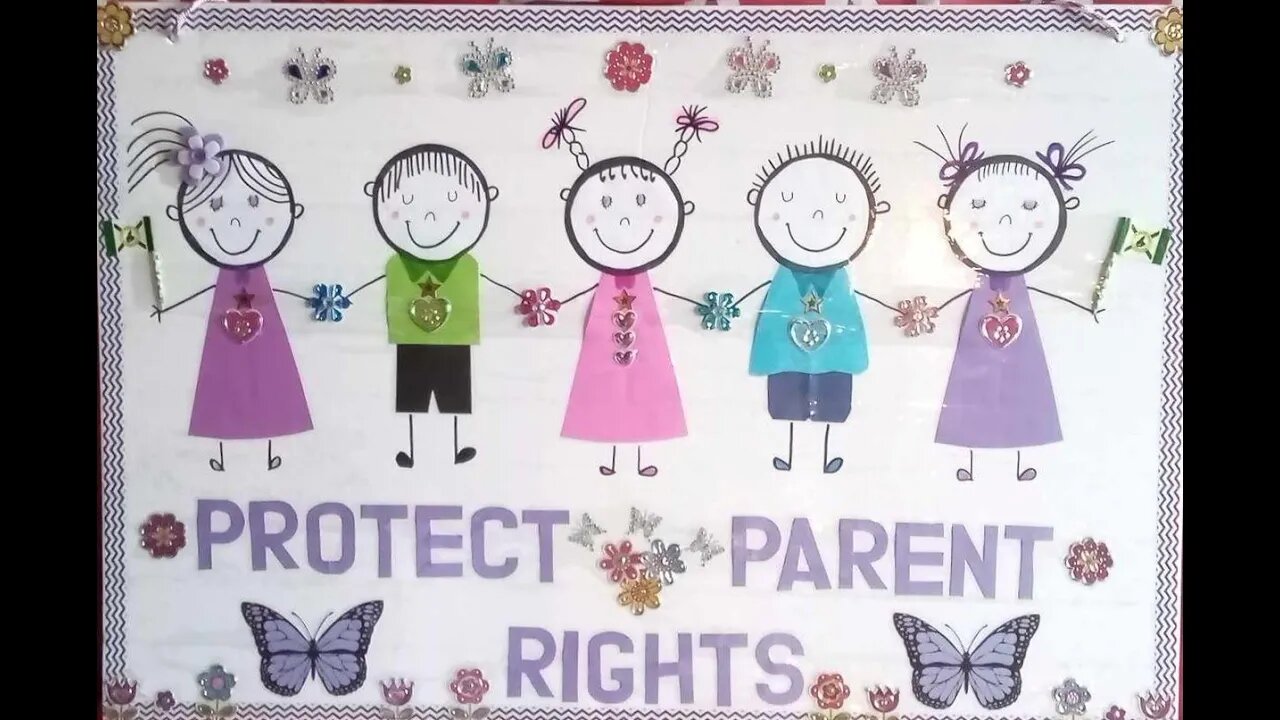Premium Only Content

Darlene Responds To "Gender-affirming care shouldn’t be ignored" Letter Posted To Facebook
The ALLY Centre of Cape Breton
September 12 at 6:07 AM
LETTER: Gender-affirming care shouldn’t be ignored
I have been feeling quite disheartened lately with regards to the homophobia and transphobia observed worldwide and on a local level.
Now it has been brought to my attention that there is a ‘1 Million March 4 Children’ planned for Sydney on Sept. 20. The idea behind this initiative is to deter schools from being a safe place for 2SLGBTQ+ children and youth to be affirmed, supported and validated in the exploration of their identities.
This creates significant barriers for students accessing support and is detrimental to the mental health of students, not to mention potentially forces children and youth into unsafe and dangerous situations. Imagine a trans, nonbinary or gender diverse student coming out to a teacher or support staff that they trust, only to be "outed" to parents that reject them.
Conservative politicians and right-wing media are weaponizing the term “gender ideology” and portraying 2SLGBTQ+ people and allies as groomers trying to indoctrinate and/or sexualize children. Of course, this is rooted in misinformation and embedded in homophobia, transphobia and heteronormativity.
Research suggests that Nova Scotia has the most trans, nonbinary and gender diverse population in the country, and yet wait times for gender-affirming care in this province tend to be longer than as recommended by national and international guidelines around gender-affirming care (Coleman et al, 2022; Department of Pediatrics and Healthy Populations, 2022; Statistics Canada, 2021). (THANK GOD FOR THAT EH)
A Canadian study exploring the health of trans and nonbinary youth found that 57 per cent of youth from the Atlantic region have experienced discrimination based on sex, 30 per cent reported attempting suicide within the past year, and 22 per cent have run away from home.
Alarming numbers
An alarming 71 per cent noted having “unmet needs” related to emotional or mental health services in the past year (Department of Pediatrics and Healthy Populations Institute, 2022, p.99). 2SLGBTQ+ are more likely to experience mental health issues such as anxiety and mood disorders, substance use issues and suicide. This is a direct result of homophobia and transphobia that queer youth are forced to navigate.
New Brunswick recently implemented Policy 713 which requires parental consent for educators and school staff to use the preferred name and pronouns of students under the age of 16. Furthermore, parents would be notified by the school if a student under 16 years of age requested a change to their gender marker or name within the school system.
Saskatchewan has implemented similar policies as well (Use of Preferred First Name and Pronouns by Students Policy, 2023). This group is trying to advocate for the same policies to be implemented in Nova Scotia.
Experts illustrate the harms associated with these policies. There have been many studies which demonstrate that rejection (e.g. not using or respecting the youth’s asserted name and/or pronouns) has been “strongly linked to negative outcomes, such as anxiety, depression, suicidal ideation, suicide attempts, and substance use” (Coleman et al, 2022, p.s52).
Remaining neutral such as ignoring or not encouraging the exploration of gender identity also leads to an increase in mental health issues such as depressive symptoms for gender diverse youth.
Gender-affirming care is harm reduction.
Gender-affirming care is mental health intervention.
Gender-affirming care is suicide prevention.
This is consistent across the literature and rooted in evidence.
Emily MacArthur, Glace Bay
-
 LIVE
LIVE
Inverted World Live
3 hours agoSecond-Generation Exorcist | Ep. 89
1,054 watching -
 LIVE
LIVE
Badlands Media
9 hours agoBaseless Conspiracies Ep. 145
26,085 watching -
 2:50:50
2:50:50
TimcastIRL
4 hours agoTrump Deploys National Guard To DC, Federalizes Police, Liberals Protests Take Over| Timcast IRL
184K56 -
 2:27:36
2:27:36
Barry Cunningham
7 hours agoBREAKING NEWS: PRESIDENT TRUMP ABSOLUTELY NUKED WASHINGTON D.C. AND THE MEDIA!
55.8K38 -
 LIVE
LIVE
Drew Hernandez
8 hours agoTRUMP'S DC TAKEOVER & ISRAEL KILLS AL JAZEERA TEAM AHEAD OF GAZA INVASION
740 watching -
 1:19:05
1:19:05
Glenn Greenwald
5 hours agoTrump's DC Takeover: Is it Legal? Israel Kills More Journalists, Including Anas al-Sharif; Glenn Reacts to Pete Buttigieg and JD Vance on Israel | SYSTEM UPDATE #501
116K98 -
 44:40
44:40
Katie Miller Pod
4 hours ago $2.98 earnedEpisode 1 - Vice President JD Vance | The Katie Miller Podcast
38.7K12 -
 13:09:34
13:09:34
LFA TV
1 day agoLFA TV ALL DAY STREAM - MONDAY 8/11/25
210K20 -
 1:44:36
1:44:36
RiftTV
6 hours agoBREAKING: Trump FEDERALIZES D.C. To RESTORE Law & Order | The Rift | Ryan Matta, Olivia Krolczyk + Braeden Sorbo
50.6K15 -
 3:00:47
3:00:47
megimu32
4 hours agoOTS: Breakfast Nostalgia + Blind Chocolate Cereal Showdown… LIVE! 🍫🥣
41K2